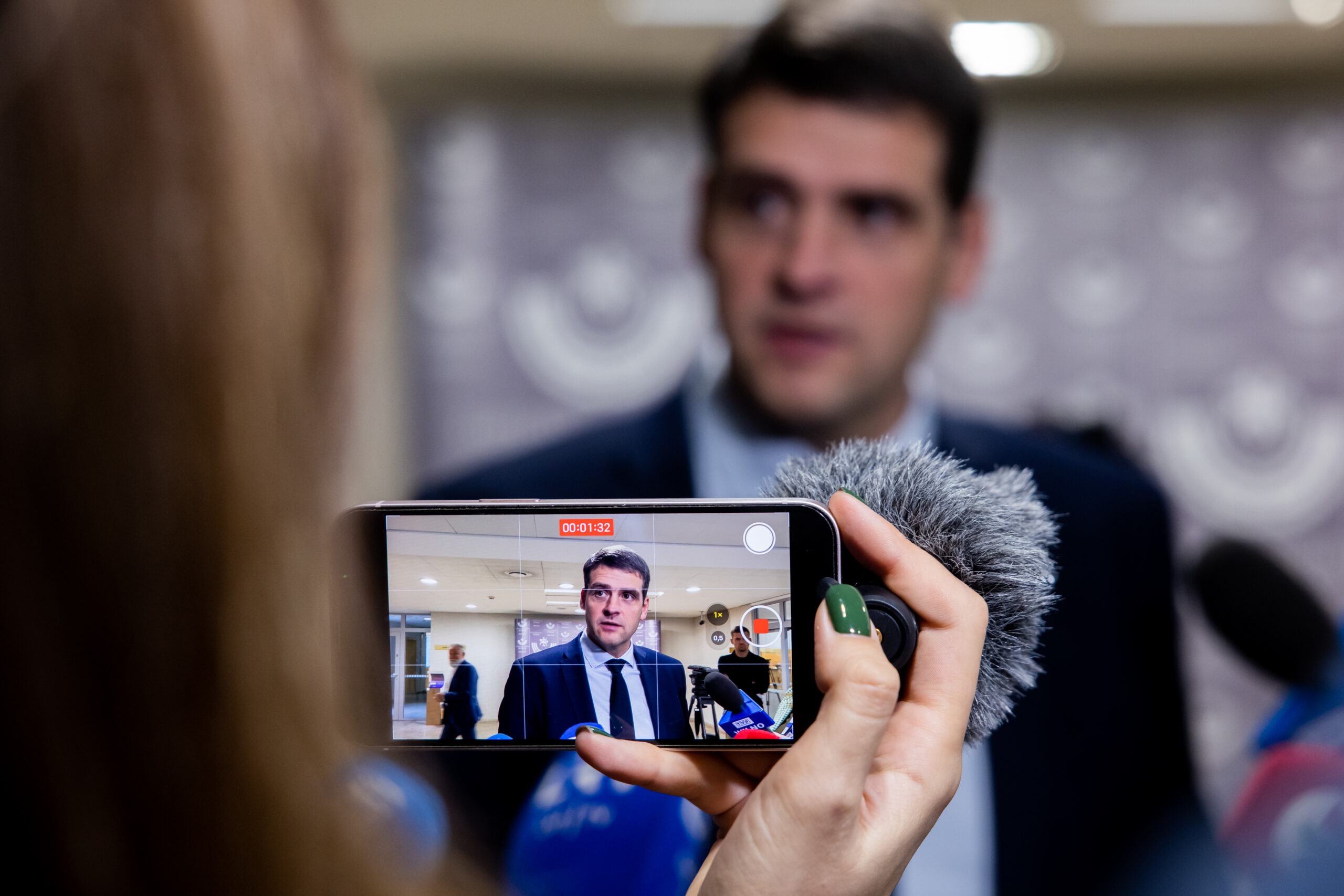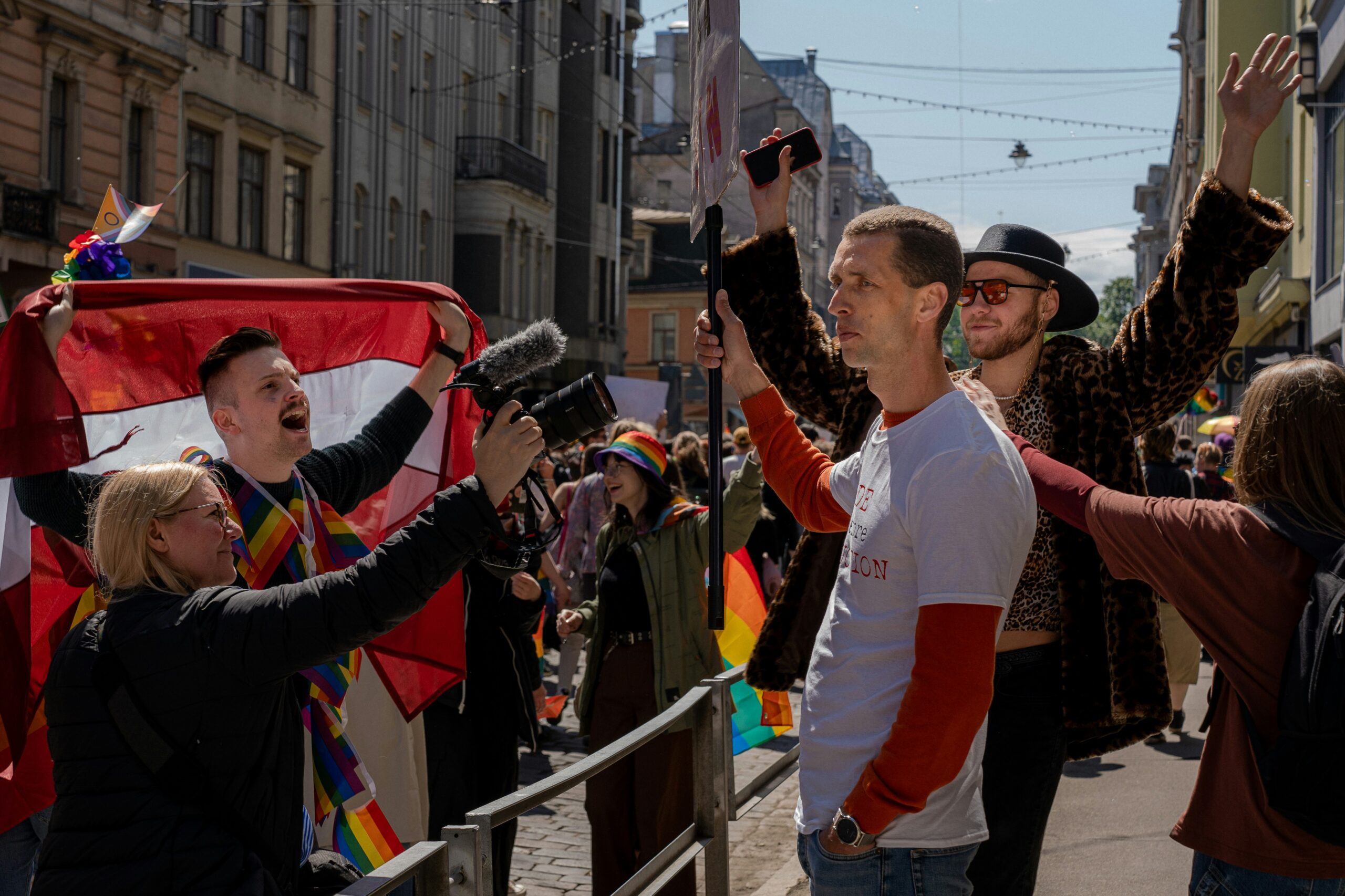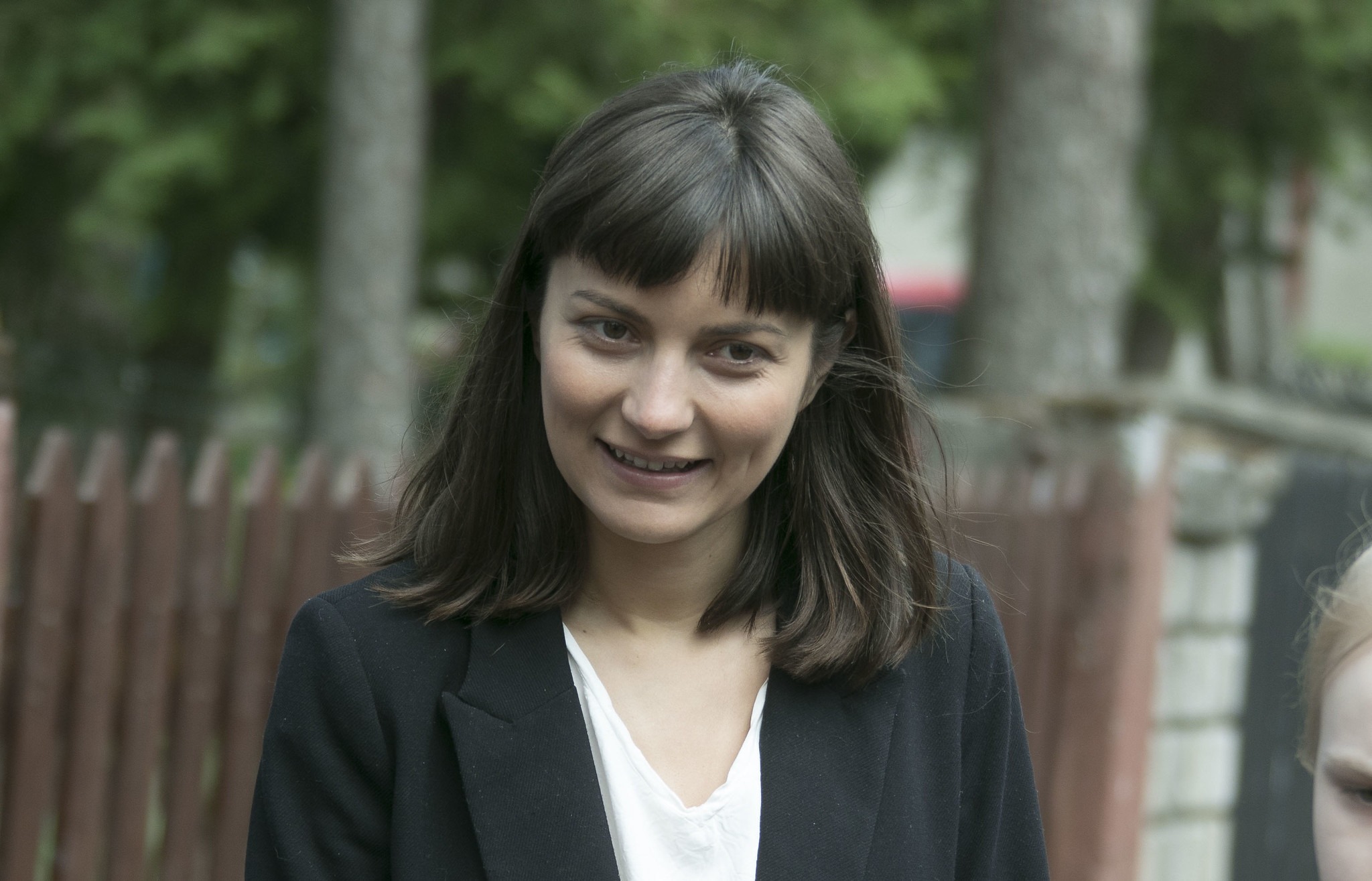
Key Insights:
In November 2024, Kremlin-aligned media in Lithuania featured various noteworthy topics, but the following themes were the most engaging ones:
- Parliamentary Coalition Controversy: The inclusion of the “Nemuno Aušra” party sparked public protests, particularly over allegations of antisemitism linked to its leader, Remigijus Žemaitaitis.
- Election Legitimacy: Kremlin-aligned media fueled claims of election fraud and suppression of dissent, undermining the legitimacy of the new government.
- Economic Concerns: Rising costs and economic instability dominated discussions, with media linking Lithuania’s foreign policy to domestic hardship.
- Support for Ukraine: Debates intensified over Lithuania’s military and financial support for Ukraine, framed as detrimental to Lithuania’s citizens.
- U.S. Presidential Election: The developments in the 2024 U.S. presidential election were closely followed in Lithuania, with discussions around the candidates’ stances on foreign policy, particularly their positions on Russia and NATO, affecting Lithuania’s security concerns.
Kremlin-aligned media in Lithuania aggressively promoted two major narratives aimed at undermining public trust in the government and its pro-Western stance. The first narrative delegitimised the recent parliamentary elections, alleging fraud and suppressed dissent while portraying the coalition with the controversial “Nemuno Aušra” party as evidence of Lithuania’s moral and political decline. Protests against the coalition were framed as signs of broader instability, deepening public disillusionment. These outlets attacked critics like former President Dalia Grybauskaitė, accusing her of Kremlin ties and discrediting her warnings about the coalition’s harm to EU and NATO relations.
The second narrative escalated criticism of Lithuania’s support for Ukraine, portraying it as an unjustified burden amidst alleged domestic crises such as economic instability, rising costs, and declining living standards. By linking foreign aid to national hardship, these platforms sought to stoke resentment against the government’s priorities, fostering anti-Western sentiments. Together, these narratives aimed to exploit political divisions, undermine democratic institutions and weaken Lithuania’s solidarity with Ukraine while advancing broader anti-Western and nationalist themes.
Regarding raising resilience in the country, researchers at Vilnius University are developing an innovative AI-based tool called ATSPARA to detect propaganda and disinformation in Lithuanian media. The system uses advanced hybrid neural networks and machine learning to identify misleading narratives in news and social media. By analysing patterns and contextual indicators, it aims to enhance public awareness and institutional response to information warfare threats. Funded by the Lithuanian Research Council, this project seeks to strengthen societal resilience against the growing challenges of fake news and propaganda.
Overview of findings:
An increased number, 1255 articles, compared to 1125 articles analysed during October, were scrutinised from four Kremlin-aligned media outlets still actively operating in Lithuania.
Throughout November 2024, the all-time most prominent Kremlin-aligned narrative in Lithuania – anti-governmental sentiments – was particularly linked to the results of recent parliamentary elections and the protests that followed afterwards. During this month, Kremlin-aligned media discussed the protest titled “10 Minutes of Silence”, which was organised to show significant discontent with the inclusion of the “Nemuno Aušra” party in Lithuania’s governing coalition. The demonstration, which took place outside the Lithuanian parliament on November 14th, gathered approximately 5,000 participants opposing this decision. The protest was fueled by the ongoing trial of Remigijus Žemaitaitis, leader of “Nemuno Aušra”, over allegations of antisemitic remarks. Critics, including President Gitanas Nausėda, have denounced the coalition as harmful to the country. Additionally, various NGOs and international officials have raised concerns about the coalition’s potential impact on democratic values and human rights in Lithuania.
Kremlin-aligned Lithuanian media offered a contrasting portrayal of the protests compared to mainstream outlets. These platforms framed the events as evidence of governmental incompetence and a broader political and moral decline, presenting Lithuania as a nation grappling with systemic instability. This narrative underscored broad dissatisfaction with Lithuania’s pro-Western orientation and suggested the coalition reflected deeper national crises.
Furthermore, these outlets leveraged the protests to amplify scepticism about Lithuania’s government, reiterating familiar anti-Western narratives of corruption and inefficacy. Disinformation networks in Lithuania continue to exploit such events, easily linking them to broader anti-Western and nationalist themes. By spreading conspiracy theories and undermining democratic institutions, these campaigns aim to foster division within Lithuanian society while diminishing support for Ukraine.
According to the media monitoring tool Awario, the topic of elections continued to dominate Lithuanian media throughout November, though this time, it was accompanied by presidential elections in the United States. The search for all forms of the word “rinkimai” (meaning “elections” in Lithuanian) revealed a significant number, over 15.2K mentions across various media platforms that the tool was able to capture. The analysis also shows how these mentions were distributed daily throughout the month, reflecting the significant media focus on the topic.
Furthermore, the significant volume of mentions generated an impressive reach of nearly 50 million. This spike in engagement highlights the high level of public and media attention surrounding the elections, as seen in the daily distribution data provided below.
Story of the month:
Green White Boys vs. Kaunas Mayor
One of Lithuania’s most discussed topics in November 2024 was the confrontation between Kaunas Mayor Visvaldas Matijošaitis and the Green White Boys (GWB), a prominent basketball team Žalgiris Kaunas fan group. The controversy erupted during a EuroLeague match, where the fans publicly criticised Matijošaitis for his business dealings in Russia through the Vičiūnų Group. This criticism stemmed from lingering resentment over his company’s operations continuing during Russia’s war against Ukraine.
During the game, GWB chanted inflammatory slogans like “Krabas yra rusų kekšė” (“The crab is a Russian puppet”), a jab at Matijošaitis’s nickname and his perceived ethical failings. The mayor reportedly responded by gesturing rudely at the fans. The incident drew sharp public and media attention, with debates over free expression, respect in public discourse, and the ethical obligations of political leaders.
Both Žalgiris and law enforcement stepped in to mediate. The basketball club condemned disrespectful behaviour and urged constructive engagement, while police initiated a review of the incident to determine whether public order laws were violated. GWB defended their protest as a principled stance against Matijošaitis’s actions, while the mayor accused them of undermining unity during a critical geopolitical period. This controversy encapsulates the intersection of sports, politics, and civic ethics, currently becoming a flashpoint in Lithuanian public discourse.
Matijošaitis turned the chant against the fan group, claiming that they are the ones “serving the Kremlin regime”. The article appeared (see screenshot on the upper right), discussing Kaunas Mayor Visvaldas Matijošaitis’s reaction to offensive chants directed at him during a basketball game in Žalgiris Arena and how Matijošaitis criticised the fans, claiming their actions inadvertently served Kremlin interests and emphasised that his company, Vičiūnai Group, had fully exited the Russian market earlier in 2024. He expressed disappointment in the fans’ behaviour, stating it undermined both the Žalgiris team and its supporters. Matijošaitis approached the police (see the screenshot and reactions to it on the lower right), urging them to investigate the incident as a breach of public order. He argued that such behaviour should not be tolerated in public spaces, especially in a setting that represents national unity and pride like Žalgiris Arena.
Considering the audience’s reaction to the controversy between Visvaldas Matijošaitis and the GWB, it greatly varied across different segments of the public, reflecting deep divides over the issue. Many Lithuanians supported GWB’s stance, particularly those critical of Matijošaitis’s business ties to Russia. These individuals viewed the protest as a legitimate expression of frustration over perceived moral failings, especially in the context of the ongoing war in Ukraine. Social media saw widespread sharing of the chants and slogans, with some applauding the fans for holding a powerful figure accountable.
Examples of the comments online: “Era of the bandits has passed, Visvaldas, has passed, unfortunately, not all the mayors understand that”; “The crab is a Russian puppet, end of sentence”.
Some of the social media users actively defended Matijošaitis, either due to his contributions to Kaunas as mayor or scepticism about the relevance of his past business decisions. They echoed his argument that the protest played into pro-Kremlin narratives, especially at a time when Lithuanian solidarity against Russian aggression was crucial.
Examples of the comments online: “I am grateful to the Mayor of Kaunas for everything he has done for Kaunas!!! If not for him, everything in Kaunas would look very sad now, as before his term, nobody cared about the municipality, the city itself, or its people! I feel very ashamed of those who are trying to humiliate him like this… I think these are poor, incapable, uneducated people with dependencies… I’ve also noticed that very few real Kaunas residents live in Kaunas now; most are from the countryside, where they likely grew up without exposure to ethics or culture.“; “Don’t care what he did before, but look how the city was rearranged”.
Online platforms were flooded with polarised discussions. Supporters and critics debated whether the protest represented justified outrage or crossed a line into disrespect and disruption. This discourse mirrored broader tensions in Lithuania about the appropriate ways to address political accountability. From a Kremlin-aligned media perspective, the controversy surrounding Matijošaitis and the GWB is seen as an opportunity to sow division in Lithuania and discredit its political unity. Such media might frame the fan protests as evidence of instability, portraying Lithuania as fractured and incapable of addressing internal dissent constructively. This fits a broader disinformation strategy of highlighting political tensions in NATO and EU countries to undermine trust in democratic institutions. Kremlin narratives might also amplify claims that dissent aids “pro-Kremlin propaganda,” further polarising the issue domestically.









